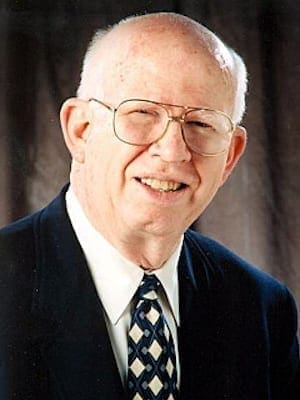Who was the funniest person in your family? Who was the most serious? Who was the caretaker? Who was the prankster?
Family stories are important. They tell who you are and where you came from.
My grandfather had the greatest laugh I had ever known until our son, Michael, came along. His laughter can light up the room.
My sister is the caretaker. She mothers everyone. Cousin Virgil could spin an unbelievable yarn. Uncle Calvin was the optimist. Daughter, Suzanne, could compete with my dad for being tenacious. The two of them were thicker than thieves.
You haven’t experienced anything as ridiculous as listening to my great-nephew, Justin, talking about his love affair with bologna. I hold the family record for preparing the worst ever Christmas ham.
I have a prized family heirloom. It is a record of the births and deaths of my father’s brothers and sisters in my grandmother’s handwriting on a parchment scroll. It was rescued in the nick of time from under my uncle’s house.
The record starts in 1888 with my grandparents’ wedding on Sept. 20. My dad took it with him to prove his eligibility for Social Security benefits. It made the rounds of the office before he got it back.
Why are these things important? These stories tell us who we are. If you do not write or record your family stories, they will die with you.
Nov. 24, the day after Thanksgiving, is the National Day of Listening. It was started by StoryCorps in 2008 as a day set aside to tell and record family stories. Where did your family come from? What brought them here?
My friend, Carl, tells the most wonderful stories about his father, who was one of the first highway patrolmen in Texas. I keep urging Carl to record his stories; otherwise, they will disappear with him. I would buy his book.
You may think that your family’s history is dull, and no one would be interested. Think again.
When I was writing my book, “Our Father: Discovering Family,” and was about to give up on the project, my wife said, “You have got to finish this at least for your grandchildren.” I finished it, and one of the reviewers said, “His grandchildren and great-grandchildren will treasure this.”
Of course, you can spend Black Friday shopping, but sitting with relatives, friends, fellow church members or civic club members and recalling and recording shared moments will prove to be much more meaningful. Try it with some older members of your church.
When I was about 9 years old, we were in Spartanburg, South Carolina, walking to the office of my ophthalmologist. I was a few paces in front of my parents. I heard my mother say to dad, “I’m not sure I want Mitch to get new glasses. He has always thought that I was so pretty.”
My late wife, Liz, was such a procrastinator that my sister told her, “Liz, you will be late to your own funeral.” As we were riding in the limo to her funeral, my sister said, “Mitch, look at your watch.” We were 10 minutes late.
Do I want that story to die with me? No, absolutely not.
When my children were small, we were driving to my Uncle Calvin’s funeral. We passed a small country church with a sign out front that read, “Revival in progress. Come and be revived.” Michael spoke up front the back seat and exclaimed, “Daddy, that’s where we can take Uncle Calvin.”
I never tired of hearing my dad talk about his asking my grandfather for my mother’s hand in marriage.
My grandfather was a big man, already dressed for bed in a nightshirt and barefoot. “There he was with tears flowing down his cheeks. ‘Well, Carnell,’ he said, ‘if you don’t know how to treat her, you know where you got her.'”
Your family stories are just as valuable as mine. Take some time. Laugh a little. Tell the stories. Be sure the voice recorder or video camera is turned on.
Mitch Carnell is a member of First Baptist Church of Charleston, South Carolina. He is the author of “Our Father: Discovering Family.” His writings can also be found at MitchCarnell.com and ChristianCivility.com.
A member of First Baptist Church of Charleston, South Carolina, he was the author of “Our Father: Discovering Family.” Mitch’s writings can be found at MitchCarnell.com.

